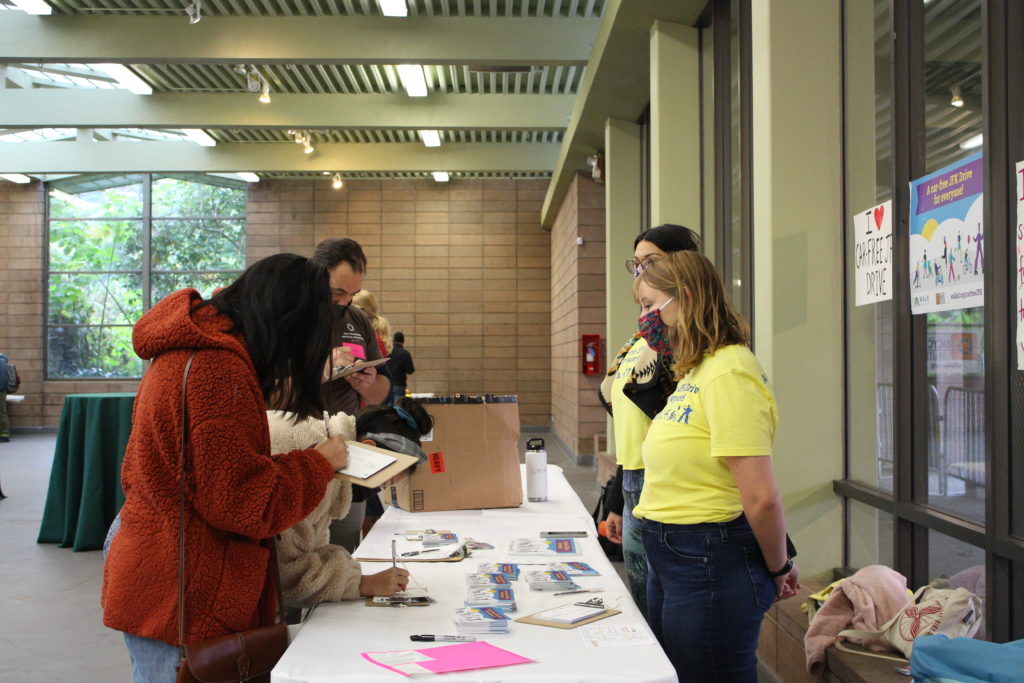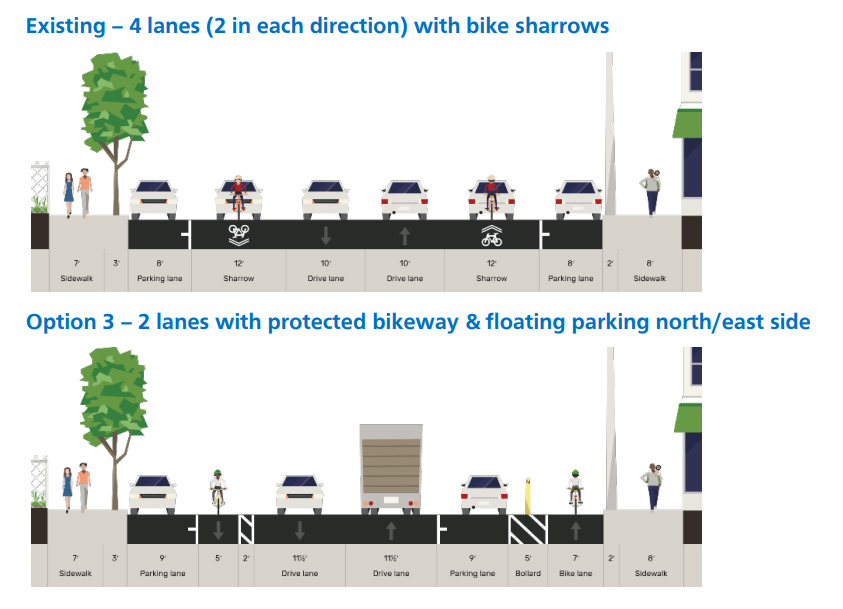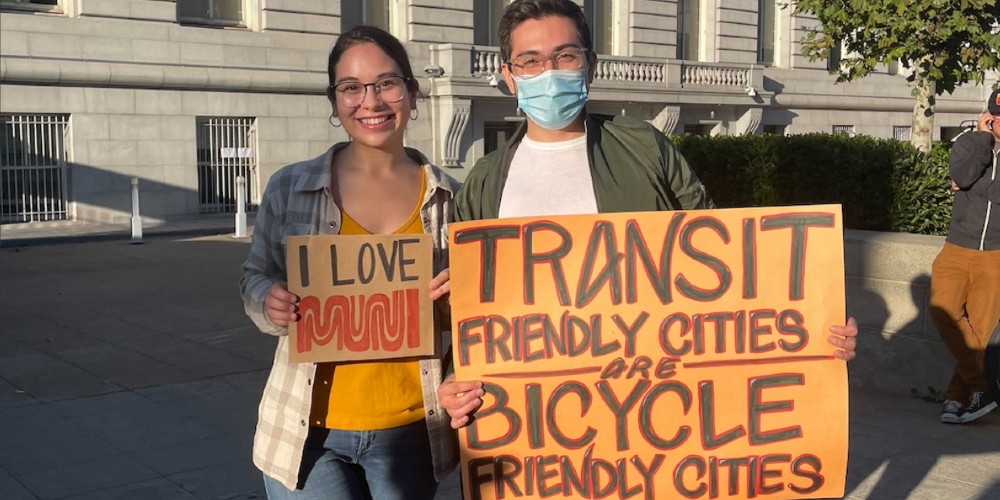The San Francisco Bicycle Coalition is hiring for our next Executive Director.
About the San Francisco Bicycle Coalition
The San Francisco Bicycle Coalition was founded in 1971 by a group of activists representing a coalition of environmental and neighborhood groups and is one of the oldest bicycle advocacy groups in the nation. For 50 years, SF Bicycle Coalition has furthered its mission – to transform San Francisco’s streets and neighborhoods into safe, just, and livable places by promoting the bicycle for everyday transportation – through its grassroots political organizing and broadening civic engagement. With its dual 501(c)(3) and (c)(4) structure and $2.5 million annual budget, SF Bicycle Coalition has grown to add community-based programs to expand access to bicycles, education programs on safe biking practices, and partnerships with other transit-focused organizations.
The opportunity
The San Francisco Bicycle Coalition is seeking a visionary leader to help forge the next chapter for the organization, someone who is ready to embrace a spirit of change and harness the energy of the moment to realize the promise of a truly bicycle-friendly San Francisco. The next Executive Director will lead the organization into a new era of advancing its mission with a focus on equity and radical inclusion to ensure the work improves the lives of all communities in San Francisco. SF Bicycle Coalition recognizes the organization’s past work has not equitably included all of the city’s communities; in particular people of color, people with disabilities, people from working class backgrounds, women, and people with LGBTQ+ identities. The organization has been examining how its future work can better include and represent those communities, apply principles of anti-racism in its work, and is looking for a leader who can help articulate and implement this future.
Your impact
The Executive Director will work closely with the Board and staff to articulate and implement a collective vision for the future of SF Bicycle Coalition and in particular, the integration of an antiracist lens to both its external work and internal operations. The Executive Director will bring a shared leadership orientation and ability to hear and engage effectively across all key constituencies, including staff, board, members, volunteers, and the diverse communities served. As San Francisco faces multiple points of transformation in the midst of the pandemic, the accelerating effects of climate change, and a continued reckoning of racial and social injustices, the Executive Director will be a champion for equitable, vibrant, inclusive urban development and engage immediately in the following opportunities for impact:
Mission Alignment and Grounding in Antiracism: Ensure that equity, inclusion, and awareness of power dynamics — and in particular, a history of harm in communities of color — are integrated in the vision, strategy, and practices of the organization. Create a culture of continuous learning and transparent communication, centering the voices and needs of BIPOC and other historically marginalized communities in its programs, messaging, and advocacy agenda.
Staff Culture and Management: Inspire, lead, and manage a diverse and talented team of professionals in both a virtual and physical environment, fostering a culture of shared values, connectivity, and continuous learning. Place a high value on wellness and wholeness of every staff member along with support to fulfill their professional aspirations in alignment with organizational goals.
Community Engagement: Build and nurture alliances across the city, particularly with underrepresented groups and communities, to ensure that SF Bicycle Coalition is constantly assessing how it can better serve all San Franciscans. Elevate SF Bicycle Coalition’s credibility and reputation in the community, bringing a listening and learning posture.
Membership Growth: Strengthen and clarify the membership value proposition to better represent communities that have not historically felt as welcome — in particular people of color, people with disabilities, people from working class backgrounds, women, and people with LGBTQ+ identities. Connect and engage effectively across the membership to promote greater awareness of SF Bicycle Coalition and its work and find new opportunities to transform San Francisco’s streets and neighborhoods into safe, just, and livable places.
Strategic Planning: Integrate mission refinement and alignment, staff retention and growth, community engagement, and membership growth and diversification in leading the development and implementation of a next-phase strategic plan for the organization.
Skills you’ll need
Success in the Executive Director role will require a deep commitment to the mission of the organization and a transformational mindset that aligns with the organization’s commitment to equity and inclusion in its work. The ideal candidate will also possess the following professional abilities, attributes, and experiences:
- A Seasoned Manager and Talent Developer. Minimum of five years of experience managing people in a values-driven context is desired including a demonstrated ability to hire, develop, retain, and manage talented and committed staff of varied experience levels. Genuine curiosity to learn about the team and be a proactive, effective developer of talent.
- Passionate Advocate, Changemaker, and Program Builder. Capacity to effectively support advocacy work in the areas of sustainability, transportation, urban planning, land use, social justice, public health, or a related field; experience with bicycle advocacy preferred but not required. Skills to bring programs from concept to reality and continuously refine and adapt programmatic approaches to changing contexts.
- Culture Builder and Inclusive Leader. Experience leading an organization through a mission and culture change, such as prioritizing inclusivity and equity within an existing advocacy mission. Expertise facilitating participatory decision-making in an advocacy, programmatic, and membership organization.
- Deep Local Roots. Understanding of how SF Bicycle Coalition fits into the landscape of local organizations, movements, and political structures and how best to influence policy in service of the broader mission. Capacity to effectively represent SF Bicycle Coalition with the media, political groups, government agencies, and with the public within San Francisco.
- Strong Donor Cultivator and Steward of Resources and Relationships. Capacity to inspire and cultivate new and existing donors and business partner relationships. A compelling voice, and amplifier of other voices, on behalf of SF Bicycle Coalition’s mission and specifically its role in advancing social and racial equity. Ability to translate messages to diverse audiences and craft effective resource development strategies and trusting, lasting partnerships. Effective manager of a multimillion-dollar nonprofit budget to support advocacy and programmatic work.
This is an exempt, salaried position that requires extensive local travel for meetings and events and some national travel for conferences. Weekend and evening work will be required to attend board meetings, fundraising events, and member programs.
The target salary range for the position is approximately $160,000-$185,000 with excellent benefits including 100% employer paid health insurance, employer matched 401k plan, and paid time off.
To apply
For more information about the San Francisco Bicycle Coalition, please visit: sfbike.org
This search is being led by Philip Arca of Arca & Associates. Candidates may submit application materials, including a resume and cover letter, via email to EDSearch@sfbike.org.
The San Francisco Bicycle Coalition is an equal opportunity employer committed to equal employment opportunity regardless of race, color, ancestry, caste, religion, sex, national origin, sexual orientation, age, citizenship, marital status, disability, size, gender identity, or Veteran status.



